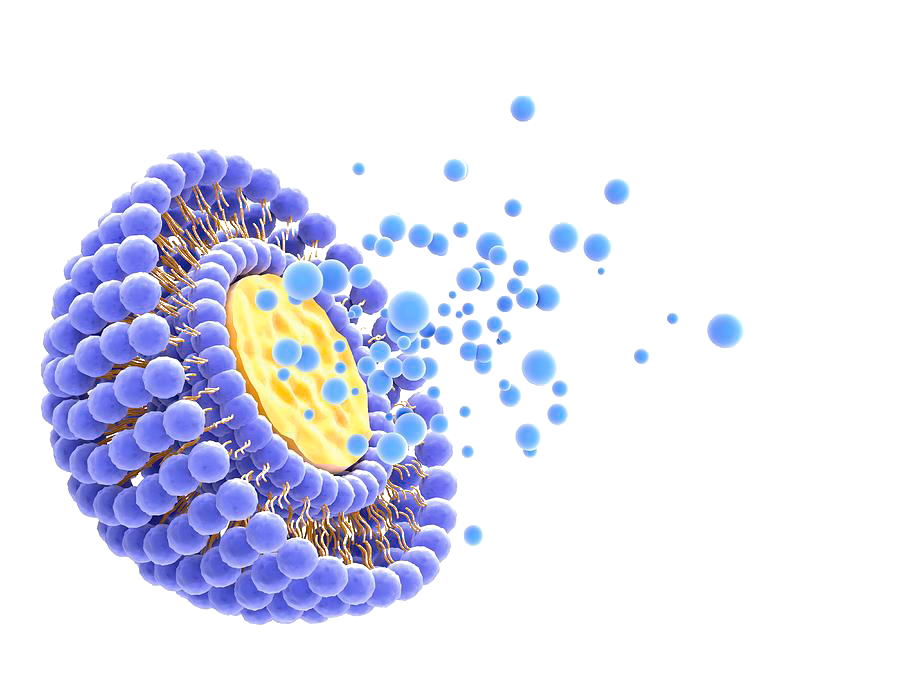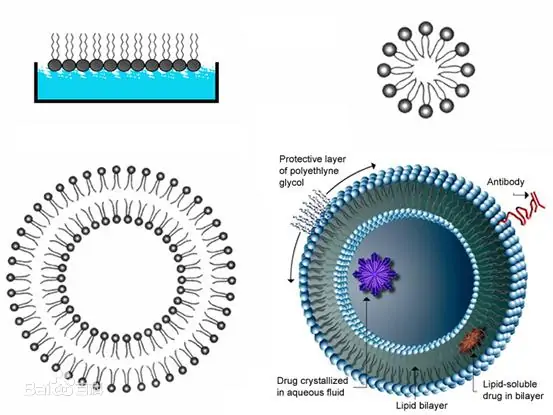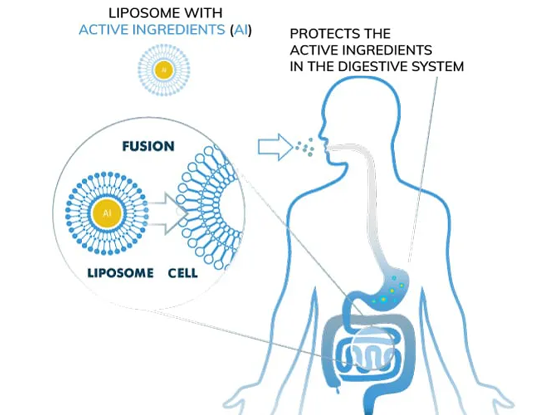Liposome Technology

What are liposomes?
Liposomes are small spherical vesicles composed of one or more phospholipid bilayers that closely resemble natural cell membranes. They can encapsulate both hydrophilic (water-soluble) and hydrophobic (fat-soluble) substances, making them versatile carriers for a variety of applications, especially in drug delivery.

Structure of liposomes
Phospholipid bilayer: this bilayer forms the outer shell of the liposome and provides a hydrophobic barrier that can trap hydrophilic substances inside.
Aqueous core: the internal aqueous region can contain hydrophilic molecules.
Hydrophobic zone: embedded within the bilayer, it can encapsulate hydrophobic drugs or substances.

Advantages of liposomes
Biocompatible and biodegradable: liposomes are made from natural phospholipids and are safe and easily metabolized by the body.
Versatility: capable of encapsulating both hydrophilic and hydrophobic substances.
Controlled release: they can be designed to release their payload at a specific time.
Targeted Delivery: Surface modification allows for targeted delivery to specific tissues or cells, thereby minimizing off-target effects.
FAQ
A: Yes, we can supply the free sample,but the shipping cost be paid by our customers.
Q2: How to start orders or make payments?
A: Proforma invoice will be sent first after confirmation of order, enclosed our bank information. Payment by T/T, Western Union or Paypal or secure payment.
Q3: How to confirm the Product quality before place orders?
A: You can get free samples for some products, you only need to pay the shipping cost or arrange a courier to us and take the samples.
You can send us your product specifications and requests, we will manufacture the products according to your requests.
Q4: what’s your MOQ?
A: Our MOQ is 1 kg. But usually we accept less quantity such as 100g on the condition that sample charge is 100% paid.
Q5: how about delivery lead time?
A: Delivery lead time: About 5-7 days after payment confirmed.(Chinese holiday not included).
Q6: Is there a discount?
A: Different quantity has different discount.





